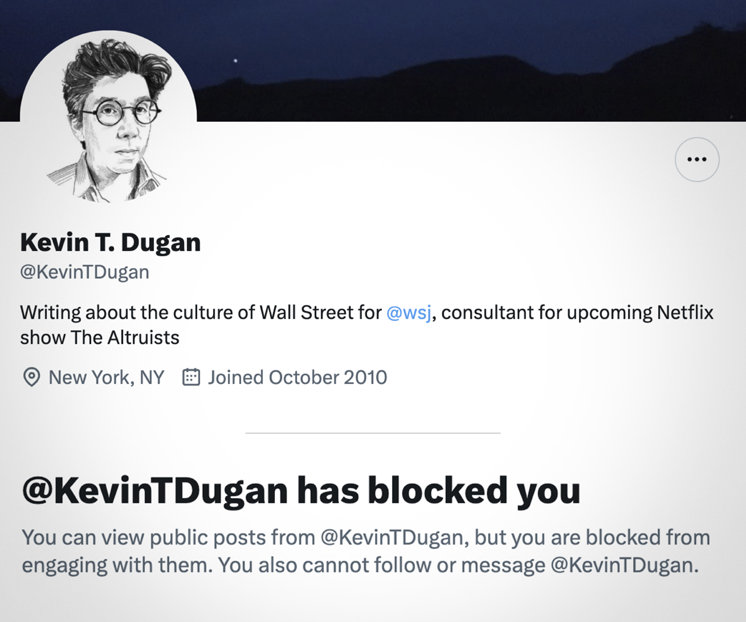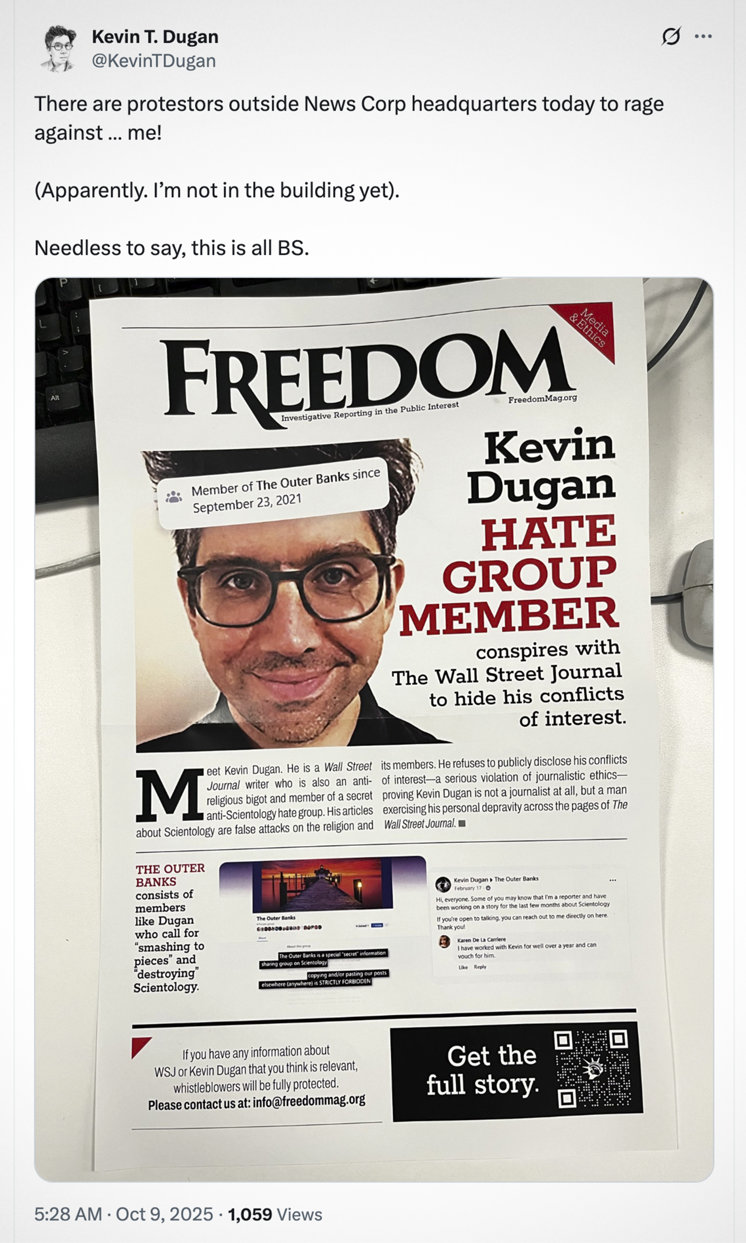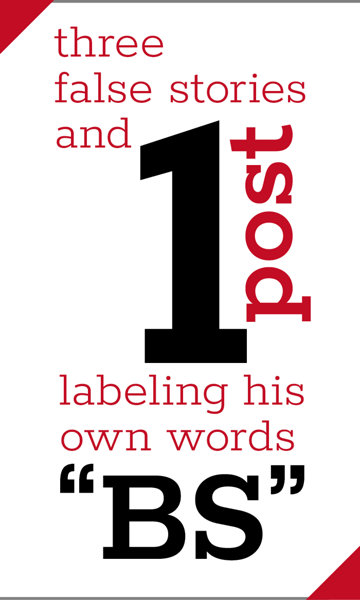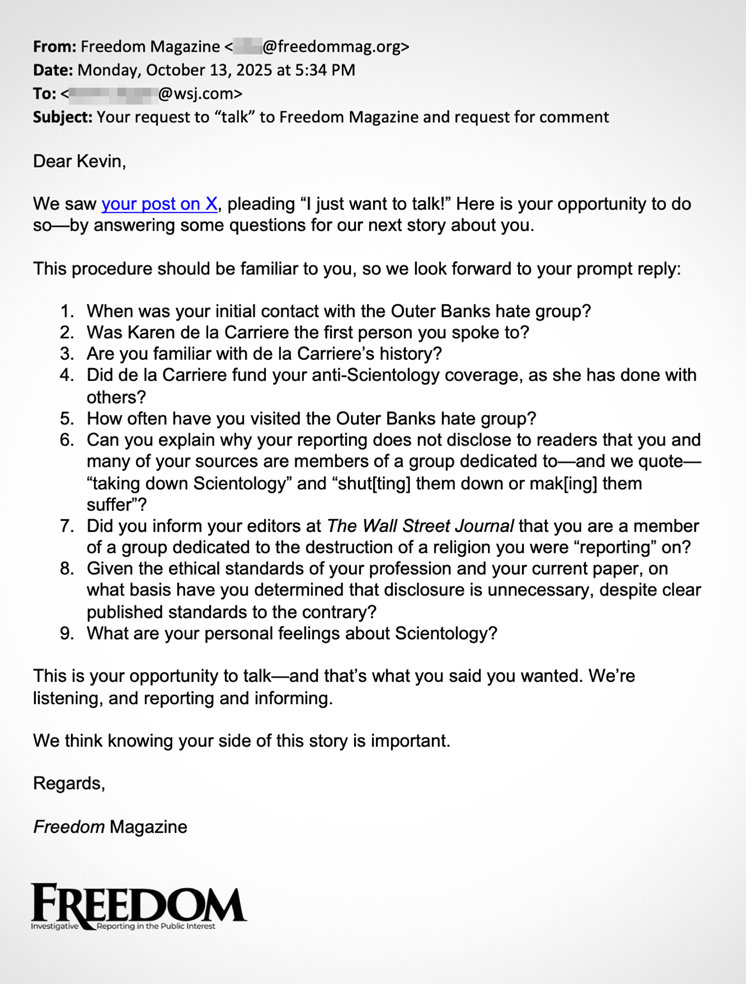Without delay, he took to X (formerly Twitter) to amplify the very material he was desperate to bury: “There are protestors outside News Corp headquarters today to rage against … me! (Apparently. I’m not in the building yet). Needless to say, this is all BS.”
His post featured a high-res image of Freedom’s handout on what appeared to be the desk of a colleague—arguably the most honest thing he’s ever posted.
His meltdown was more than nerves—it was evidence.
Next, a follow-up post appeared: “They were gone by the time I got in. :( Come back! I just want to talk!”
Then, Dugan went on a rampage—blocking every Freedom account on X, exposing his “I want to talk” line as empty theater.

In other words, true to form, Dugan did what he does best: confuse exposure for persecution and sarcasm for transparency, all while trying to silence those who correct his noxious bigotry.
His meltdown was more than nerves—it was evidence. In calling Freedom’s exposé “BS,” Dugan lied, again, to everyone’s faces—because the broadsheet featured none other than Dugan’s own anti-Scientology postings.
As Freedom quickly pointed out on X: “Kevin Dugan claims that reproductions of his own posts as part of a hate group are ‘BS.’ How can you trust a @WSJ story from a ‘journalist’ who lies about his own words?”

Freedom has long documented Dugan’s deep entanglement with The Outer Banks, a secret Facebook group dedicated to the destruction of the Scientology religion—home to posts such as “Make them suffer” and “Scientology must be smashed to pieces.”
And Dugan didn’t just lurk there. He solicited tips from fellow members, writing: “Hi, everyone. Some of you may know that I’m a reporter and have been working on a story for the last few months about Scientology.”
The group’s co-founder, anti-Scientologist Karen de la Carriere—a former call girl who openly boasts of paying others to spread anti-religious propaganda—endorsed him in kind: “I have worked with Kevin for well over a year and can vouch for him.”

What she vouched for wasn’t journalism. It was a conspiracy with a byline.
Dugan’s earlier bylines reveal the same malicious pattern. In 2022, writing for New York Magazine, Dugan published an anti-Scientology hate screed that relied heavily on sources tied to the same bigoted network. None of this, of course, was disclosed.
So, after Dugan’s farcical plea for dialogue, Freedom sent him a formal inquiry, bearing the subject line: “Your request to ‘talk’ to Freedom and request for comment.” Among the questions:
- When was your initial contact with The Outer Banks hate group?
- Did Karen de la Carriere fund your anti-Scientology coverage, as she has others?
Did you inform WSJ editors that you are a member of a group dedicated to the destruction of a religion you report on?
On what ethical basis did you determine disclosure unnecessary?
The email ended, fittingly: “This is your opportunity to talk—and that’s what you said you wanted.”
So far, silence.

On the platform where Dugan blocks those who attempt to tell the truth about him, he boasts about his new consulting role for a forthcoming Netflix series about Sam Bankman-Fried, the convicted crypto fraudster whose empire collapsed under lies and self-dealing.
The irony is almost irresistible: a man accused of deception advising a studio dramatizing deception.
And that deception—and Dugan’s very public unraveling—is a symptom of something larger: A Gallup poll published on October 2 calls public confidence in the media “historically low.” Only 28 percent of Americans express even “a fair amount” of trust in newspapers, television or radio—a plunge from 72 percent in the 1970s.
The message is clear: Readers notice when rules vanish. They see when a reporter becomes an activist (or a double agent), when outlets protect bias rather than police it, and when “news” ceases to inform and starts to corrupt.
Both Sam Bankman-Fried and Kevin Dugan built credibility on trust—and both destroyed it the same way: through deceit.
One defrauded investors; the other defrauds readers.
And the only “BS” was Dugan’s delusion that his malice could escape scrutiny forever.






















